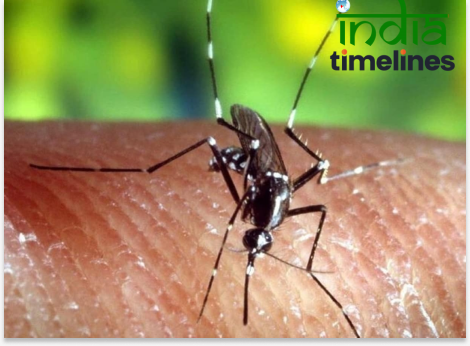
West Nile virus (WNV) is an infectious disease that has garnered global attention due to its potential to cause serious illness and even death. Since its discovery, the virus has spread to various parts of the world, becoming a significant public health concern. Understanding what West Nile virus is, how it spreads, and why it’s important to be informed about it can help in preventing and managing the risks associated with this disease.
What is West Nile Virus?
West Nile virus belongs to the Flavivirus genus, which also includes other well-known viruses such as Zika, Dengue, and Yellow Fever. It was first identified in 1937 in the West Nile district of Uganda, which is how the virus got its name. Since then, it has spread across Africa, Europe, the Middle East, and North America.
WNV primarily affects birds, but it can also infect humans, horses, and other animals. The virus is most active during the year’s warm months, typically from late spring to early fall, when mosquito populations are at their peak.
How Does West Nile Virus Spread?
The primary mode of transmission for West Nile virus is through the bite of an infected mosquito. Mosquitoes become carriers of the virus after feeding on infected birds, which are the natural hosts of the virus. Once a mosquito is infected, it can transmit the virus to humans and other animals through its bite.
- Mosquito Transmission: The most common mosquito species responsible for spreading WNV are Culex mosquitoes. These mosquitoes are typically active during dusk and dawn, increasing the risk of transmission during these times. When an infected mosquito bites a human or animal, it injects the virus into the bloodstream, leading to potential infection.
- Bird-to-Mosquito Transmission: Birds play a critical role in the WNV transmission cycle. Certain bird species, such as crows, jays, and sparrows, are particularly susceptible to the virus and can carry high levels of the virus in their blood. When a mosquito bites an infected bird, it can pick up the virus and become a vector for transmission to other animals and humans.
- Human-to-Human Transmission: Although rare, WNV can also be transmitted from person to person through blood transfusions, organ transplants, and from mother to child during pregnancy, childbirth, or breastfeeding. Screening processes for blood and organ donations have significantly reduced the risk of transmission through these routes.
- Other Routes of Transmission: In very rare cases, WNV has been transmitted through laboratory exposure or via needlestick injuries in healthcare settings. However, these cases are exceedingly uncommon, and the primary risk remains mosquito bites.
Symptoms and Health Implications of West Nile Virus
Most people infected with West Nile virus do not experience symptoms and may never know they were infected. However, for those who do develop symptoms, the severity can vary widely.
- Asymptomatic Cases: Approximately 80% of people infected with WNV will remain asymptomatic, meaning they do not exhibit any noticeable symptoms. These individuals may develop immunity to the virus without ever realizing they were infected.
- West Nile Fever: Around 20% of infected individuals will develop West Nile fever, a mild to moderate illness characterized by symptoms such as fever, headache, body aches, fatigue, skin rash, and swollen lymph nodes. These symptoms typically appear within 2 to 14 days after being bitten by an infected mosquito and can last for several days to a few weeks.
- Severe Neuroinvasive Disease: In less than 1% of cases, West Nile virus can lead to severe neuroinvasive disease, which affects the central nervous system. This can manifest as encephalitis (inflammation of the brain), meningitis (inflammation of the membranes surrounding the brain and spinal cord), or acute flaccid paralysis (sudden muscle weakness). Symptoms of severe WNV disease may include high fever, severe headache, neck stiffness, disorientation, tremors, convulsions, muscle weakness, and even coma. These severe symptoms can be life-threatening, particularly in older adults and individuals with weakened immune systems.
- Long-Term Effects: While most people recover fully from West Nile fever, those who develop severe neuroinvasive disease may experience long-term neurological effects, including memory loss, muscle weakness, and fatigue. Recovery from severe WNV disease can be slow, and some individuals may never regain full function.
Why You Need to Know About West Nile Virus
Understanding West Nile virus and its potential impact is crucial for several reasons:
- Public Health Concern: WNV is a significant public health issue in many parts of the world, particularly in regions where mosquito populations are high. Being informed about the virus can help individuals take preventive measures to reduce their risk of infection.
- Seasonal Outbreaks: West Nile virus tends to cause seasonal outbreaks, particularly during the warmer months when mosquito activity is at its peak. Awareness of the virus and its transmission patterns can help communities prepare for and respond to potential outbreaks.
- Prevention and Control: Knowing how WNV spreads and the risks associated with it can empower individuals to take steps to protect themselves and their families. Simple measures such as using insect repellent, wearing protective clothing, and eliminating standing water around homes can significantly reduce the risk of mosquito bites and WNV infection.
- Risk Groups: Certain groups, including older adults, individuals with compromised immune systems, and those with certain chronic conditions, are at higher risk of developing severe illness from WNV. Understanding the risks can help these individuals take extra precautions to avoid infection.
- Global Spread: While West Nile virus was initially confined to certain regions, global travel and climate change have contributed to the spread of the virus to new areas. Being aware of the virus and its potential presence in different regions can help travelers take appropriate precautions.
Prevention Tips for West Nile Virus
Preventing West Nile virus primarily involves reducing the risk of mosquito bites and controlling mosquito populations. Here are some practical tips to help prevent WNV infection:
- Use Insect Repellent: Apply insect repellent containing DEET, picaridin, or oil of lemon eucalyptus to exposed skin and clothing when spending time outdoors, particularly during peak mosquito activity times (dawn and dusk).
- Wear Protective Clothing: When possible, wear long-sleeved shirts, long pants, socks, and shoes to reduce the amount of exposed skin. Light-colored clothing is less attractive to mosquitoes.
- Eliminate Standing Water: Mosquitoes breed in standing water, so regularly empty and clean containers such as birdbaths, flowerpots, and gutters where water can accumulate. Ensure that swimming pools are properly maintained and covered when not in use.
- Use Mosquito Nets and Screens: Use mosquito nets over beds and cribs, especially in areas where WNV is prevalent. Ensure that windows and doors have tight-fitting screens to prevent mosquitoes from entering your home.
- Stay Indoors During Peak Mosquito Hours: Limit outdoor activities during dawn and dusk when mosquitoes are most active. If you need to be outside, take extra precautions to protect yourself from mosquito bites.
- Support Community Efforts: Participate in community-wide mosquito control programs, such as neighborhood clean-up efforts to eliminate breeding sites and the use of larvicides in standing water.
What to Do If You Suspect West Nile Virus Infection
If you experience symptoms of West Nile virus, particularly after being bitten by a mosquito, it’s important to seek medical attention. While there is no specific treatment for WNV, supportive care can help manage symptoms and reduce the risk of complications.
- Mild Symptoms: For mild cases of West Nile fever, over-the-counter pain relievers and fever reducers can help alleviate symptoms. Rest and hydration are also important for recovery.
- Severe Symptoms: If you or someone you know develops severe symptoms, such as a high fever, severe headache, neck stiffness, confusion, or muscle weakness, seek immediate medical care. Hospitalization may be necessary to manage severe cases, and early intervention can improve outcomes.
- Report Symptoms: In areas where West Nile virus is prevalent, reporting symptoms to local health authorities can help track the spread of the virus and inform public health responses.
Conclusion
West Nile virus is a serious and potentially life-threatening disease that requires awareness and proactive prevention. By understanding what West Nile virus is, how it spreads, and why it’s important to be informed, you can take steps to protect yourself and your community from this dangerous virus. Stay vigilant, especially during peak mosquito season, and follow recommended prevention measures to reduce the risk of infection. If you suspect you may have been exposed to West Nile virus, seek medical attention promptly to ensure the best possible outcome.




































trezor.io/start